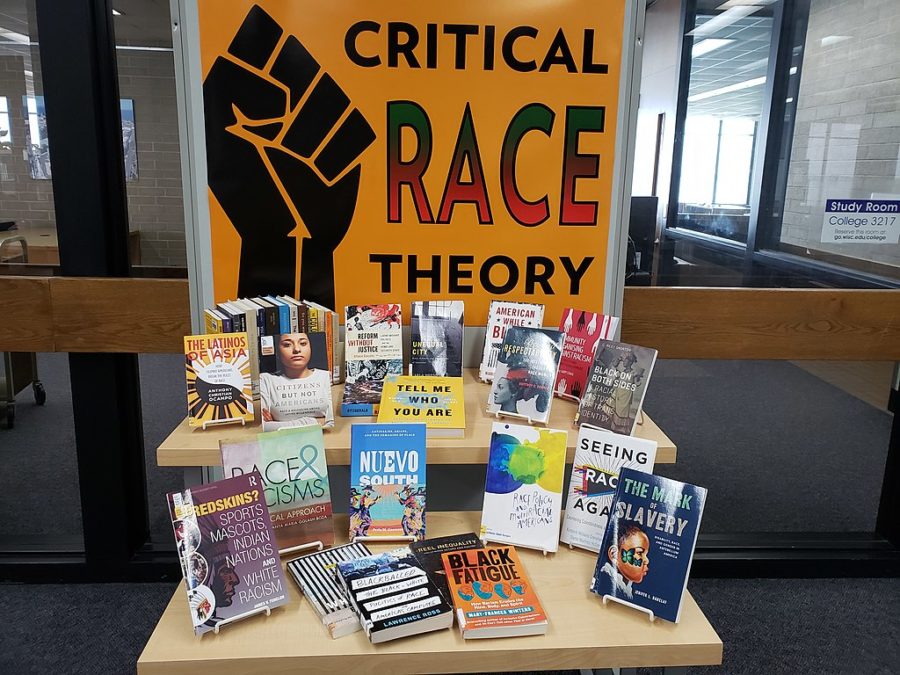What is Critical Race Theory and why do people oppose It?
According to Brittanica, Critical race theory is an intellectual and social movement based on the premise that race is not a natural, biologically grounded feature of physically distinct subgroups of human beings but a socially constructed category that is used to oppress and exploit people of colour.
February 28, 2023
With recent legislation in some states restricting certain teachings about race and its interactions with society and institutions, there has been a lot more discussion and controversy surrounding Critical Race Theory (CRT). The main problem is many people on both sides of the debate seem to misunderstand what CRT actually is. So, what is CRT? And very importantly, why do many people oppose it?
Critical Race Theory can be described as a lens of analysis that views race as a social construct rather than something biological and natural. Through this lens, we can analyze social, political and legal structures around the social conception of race.
Many of the people in opposition say that CRT calls all white people and their culture racist, and hence is itself a racist and harmful theory.
However, this isn’t correct. CRT attributes racism not to individual people, but to institutions (education, policing, healthcare, etc). They point to disparate outcomes that these institutions produce as evidence that they are embedded with racism. It also seeks to analyze and challenge the power distributions in society and how they relate to race.
CRT seems to be a compelling way to look at the world, but what are its weaknesses?
One criticism that can be made of CRT is its epistemology, specifically standpoint epistemology: the view that racial minorities have more authority to speak about racism.
Why is this problematic?
One reason is because this promotes “storytelling.” Of course, personal experiences are important and should not be ignored. However, when attempting to describe and criticize social structures and institutions, it seems it would be logically fallacious to base their entire nature on anecdotal events.
This seems to be guilty of the anecdotal fallacy. Individual experiences are important but may not be representative of the system as a whole.
Another problem with this epistemology is that it runs a risk of creating racial power structures.
If a certain group has power over another regarding the definitions and conversations about racism, especially about the actions that should be taken by society, it seems that this itself could potentially create a power dynamic between racial groups.
And if it is believed that power dynamics cause social problems (this is the view of critical theory) to some extent, isn’t it reasonable to be wary of the effects of this view?
Standpoint epistemology doesn’t rid society of racial power dynamics, it shifts them.
It seems that racism isn’t defined by any objective measure independent of our minds, but it depends on the view of certain groups in society. This leads to relativism. If this is the case, it becomes difficult for society to challenge or facilitate disagreement with differing views.
Perhaps the biggest weakness of Critical Race Theory is its connection to postmodernism: a movement characterized by broad skepticism, subjectivism or relativism; a general suspicion of reason; and an acute sensitivity to the role of ideology in asserting and maintaining political and economic power.
The problem with this is many Critical Race Theorists believe that in social science, truth is socially constructed, and it is created to benefit the dominant group.
Why is this an issue?
If “truth” cannot be defined by objective measures but is relative to the way we view society (which “lens” we see things through), then it seems like whichever lens of analysis we use, society will be viewed not by its own nature but by how the lens perceives society’s nature to be.
If society is viewed through the lens of Critical Race Theory, then any evidence or data of racial inequality is in and of itself indicative of the predetermined view that social and political institutions are racist.
It doesn’t challenge and correct our predetermined views. It accommodates and justifies them.
Lastly, Critical Race Theory seems almost unfalsifiable. Any rejection or criticism of the tenants or conclusions of CRT is viewed as defending the status quo or as racism itself.
Now, this isn’t to say Critical Race Theory does not have its merits, uses and insights (there are many in fact I have not noted, but I wanted to gear this piece more toward a criticism). We should simply be aware of its strengths and weaknesses and be careful how we apply its analysis.


















Alex Davenport | Mar 1, 2023 at 8:47 am
Unfortunately, this suffers from a misunderstanding of social theory and takes a positivistic position more common in the physical sciences. It is difficult to understand Critical Race Theory from this epistemological position. One would need a stronger foundation in various movements within social theory before exploring Critical Race Theory. This is why Critical Race Theory is generally taught in graduate level courses, and lacks clarity without a strong foundation.
Nuke | Mar 1, 2023 at 8:36 am
The charge here is of false narrative. Isn’t that at the heartof white-washed versions of history we were taught in primary school and propaganda movies out of Hollywood? There is at least one false assumption in Ramey’s column, namely that institutions are to be deemed entirely separate from the people who run them. And I would like to see better proof that the CRT narratives are not backed by statistics. Fact is, CRT is backed by statistics and historical contexts often oppressed in generations past.
Jordan Peterson | Feb 28, 2023 at 11:10 pm
The next ben shapiro